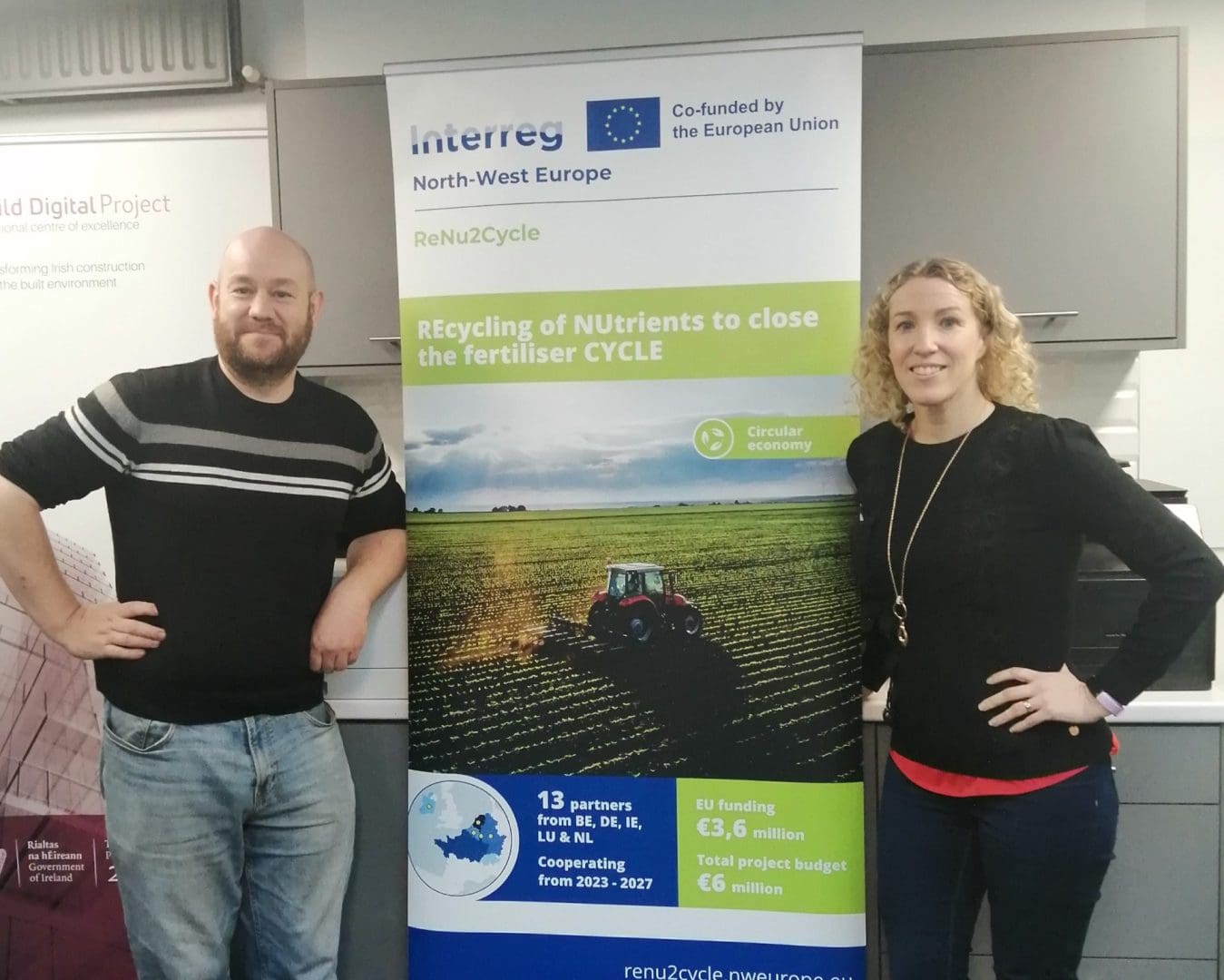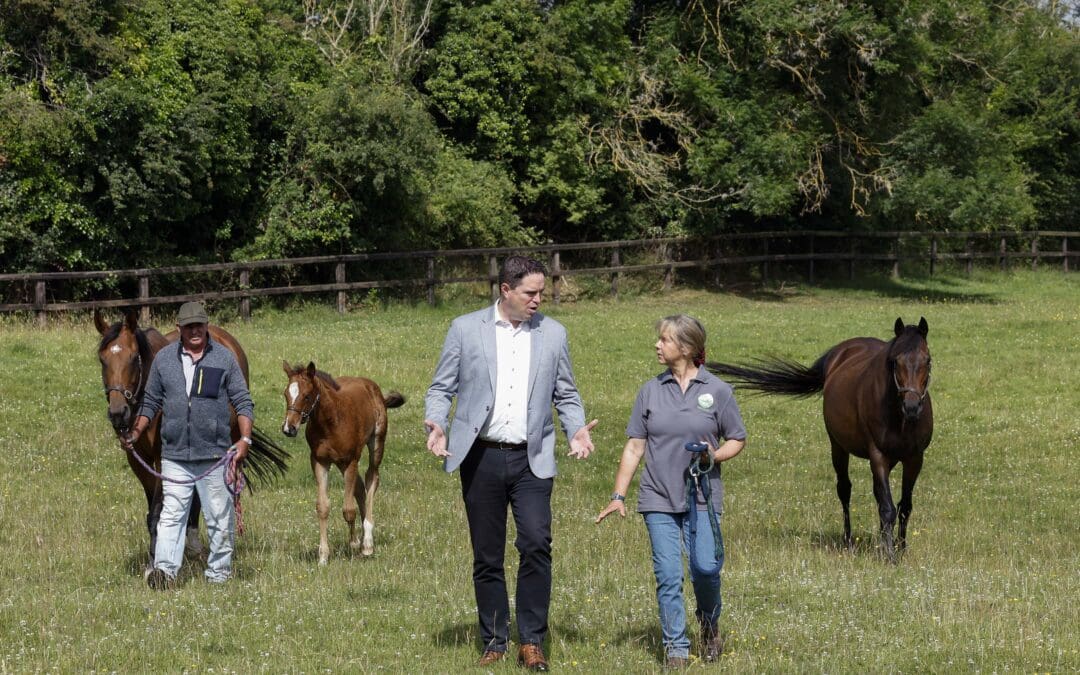ReNu2Cycle’s overall objective is to reduce Northwest Europe’s (NWE’s) dependency on fossil-based fertiliser imports through the increased use of Recycling Derived Fertilisers (RDFs). The project will examine impacts on availability, ecological footprint, supply chain and price stability via the use of recycled NPK from municipal, industrial/agricultural food business waste and other agricultural sources. This will build on the achievements of the ReNu2Farm project (2017 to 2023) which provided basic and regional quantified fertiliser demand research.
The project will look to adapt regional best-practices for NWE through the innovative use of living lab concepts across all aspects of the projects research, ensuring long-term co-innovation and implementation support will be stimulated and encouraged. Future RDF use will be maximised by creating innovative fertiliser blends and business solutions for producer’s portfolios incl. sustainability assessment. RDFs will be blended, prototyped & demonstrated on farms within the project’s regions using Living Lab methodology to access their suitability for NWE wide adoption by farmers.
All results will be capitalised in one transregional nutrient supply-demand strategy and regional action plans to empower individuals, regions, and countries to grow the bioeconomy and maximise the use of recycled fertilisers. Resource owners, fertiliser producers, traders & farming communities will benefit from this strategy and the latest EU policies allow a harmonised RDF market trade in NWE, contributing further to NWE food supply security.
Within Ireland, Munster Tecnological University is joined by South East Technological University, University of Limerick and Teagasc along with project partners from across the NWE region within the education, research and governance sectors.
According to Dr Niamh Power who is leading ReNu2Cycle’s research for Munster Technological University “With more focus than ever on sustainable agriculture, recycling derived fertilisers can play their part in reducing the impact of the farming sector while contributing to food security. RDFs make sense.”
Further information on ReNu2Cycle can be found here.




